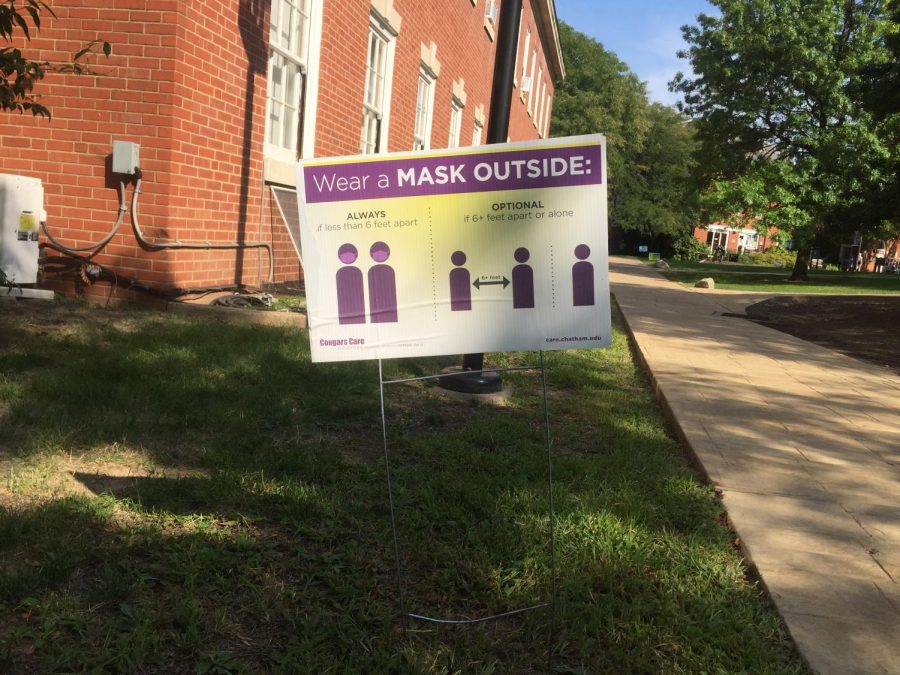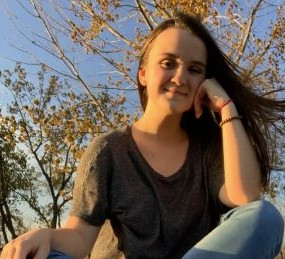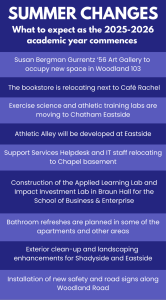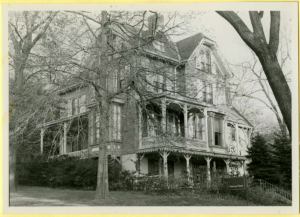A letter to the Chatham community ahead of the fall 2021 semester
April 23, 2021
The abrupt end of last year’s spring semester and the following summer drastically changed our collective every-day. Combined with the prior presidential administration’s incessant disregard for public safety, communities throughout the United States have endured, struggling on an unprecedented scale for well over a year now. Vaccination efforts indicate a distant light at the end of the tunnel, but the need for intensive health and safety measures still remains.
United States college students are a community that endured much of this change in a rapid amount of time. Chatham, specifically, underwent a sharp switch to a strictly online learning format in March 2020, which came with both social and academic challenges. Decreased sociability magnified feelings of isolation during an already lonesome world event; online learning is often a medium deemed inaccessible to a broad intersection of individuals, whether due to resource inequality or disability.
Still, as the reality of fall and spring semesters set in, students were hopeful that the necessary adjustments were not to be made in vain. Yet in many crucial ways, Chatham University failed to facilitate an adequate school year during the COVID-19 pandemic.
As an immunocompromised person, I understand, empathize with and appreciate the safety protocols instituted by Chatham during the 2020-21 school year. I was heavily reliant on those measures for my own well-being as I navigated the last two semesters. But there were still several aspects of both campus life and administrative decisions that, in my opinion, harmed students at large during an already traumatic time.
Chatham exhibited a distant attitude throughout the pandemic. While the mental health resources frequently offered via email and the COVID-19 dashboard both proved to be useful tools, there seemed to be a lack of engagement with the student community in order to understand what we needed on a personal level. As a small school, community forums are more than feasible, and decisions on part of the University should be proactive, not reactionary.
The policy of singular respite days scattered throughout the spring semester is not unique to Chatham, but a detriment to students, nonetheless. When the respite days were in the middle of the week, students couldn’t use them as mental/physical health breaks because the rest of the week’s responsibilities still loomed. Furthermore, missing the same class on these respite days put unfair constraints on certain courses since they did not yield the same amount of class time that week as the other courses that did not fall on respite days.
Another hindrance to students’ academic performance was the lack of changes made to academic expectations across the board, as well as the process of receiving academic accommodations on a case-by-case basis. There should have been community discussion regarding the potential for Pass/Fail options for certain student populations and/or certain classes as they apply to an individual’s major progress. Additionally, while the Office of Academic & Accessibility Resources (OOAR) provides resources for medical accommodations, the process of garnering the required medical documentation could exclude some students without access to adequate healthcare. The process of obtaining medical accommodations should have been made more readily available at the start of the fall 2020 semester, as the online format presented many unprecedented challenges to students unaccustomed to (in some cases) entirely online learning.
The expectation of some students to perform fully online without an accommodation – or with an accommodation that does not apply retroactively – can be ableist. I encountered this issue head-on with the onset of total online learning, which brought an uptick in my epilepsy symptoms due to the increase in my daily screen time. Despite my accommodation, my symptoms were unpredictable, and I found myself instead relying on the help of my friends and the grace of my professors to get me through. My heart aches for students who were not afforded this same level of understanding.
The combination of symptoms, medication adjustments, isolation and the shared stress of undergoing the pandemic resulted in a draining junior year for me. I was often embarrassed to express my need for an assignment extension, especially if it violated the terms of my accommodation, and struggled with the decision whether or not to disclose my condition the more and more I asked for special circumstances.
Looking back, I am eternally grateful to the faculty members I worked with this school year for supporting me, despite the challenges they faced teaching in an online format. Fostering a welcoming and engaging environment through a computer screen is no easy feat. I hope that Chatham provided all faculty members ample resources and support to make online teaching as accessible as possible and that they continue those efforts into the 2021-22 school year. I also hope that the aid of the faculty was granted impartially to all of my peers.
Even more so, I am grateful to Chatham’s student body for following the prescribed COVID-19 measures and bearing through the strangest of times. I felt a powerful sense of togetherness, even during the lowest lows, because of our dedication to inclusivity and compassion for one another. I hope that my fellow students found the same support I did in each other, and I will continue to extend that same support to you going forward.
Now, as we conclude the school year, I hold a lot of sympathy and hope for Chatham in the fall. I understand that the decision-making process heading into an online format was beyond stressful due to the time constraints and the mass of people involved, and I can’t claim to have the proper answers to the problems that the student body has raised. I hope that the takeaway from our collective experience is that community engagement is crucial; we have a small, close-knit environment, and we ought to put that to good use, starting from the top down.







